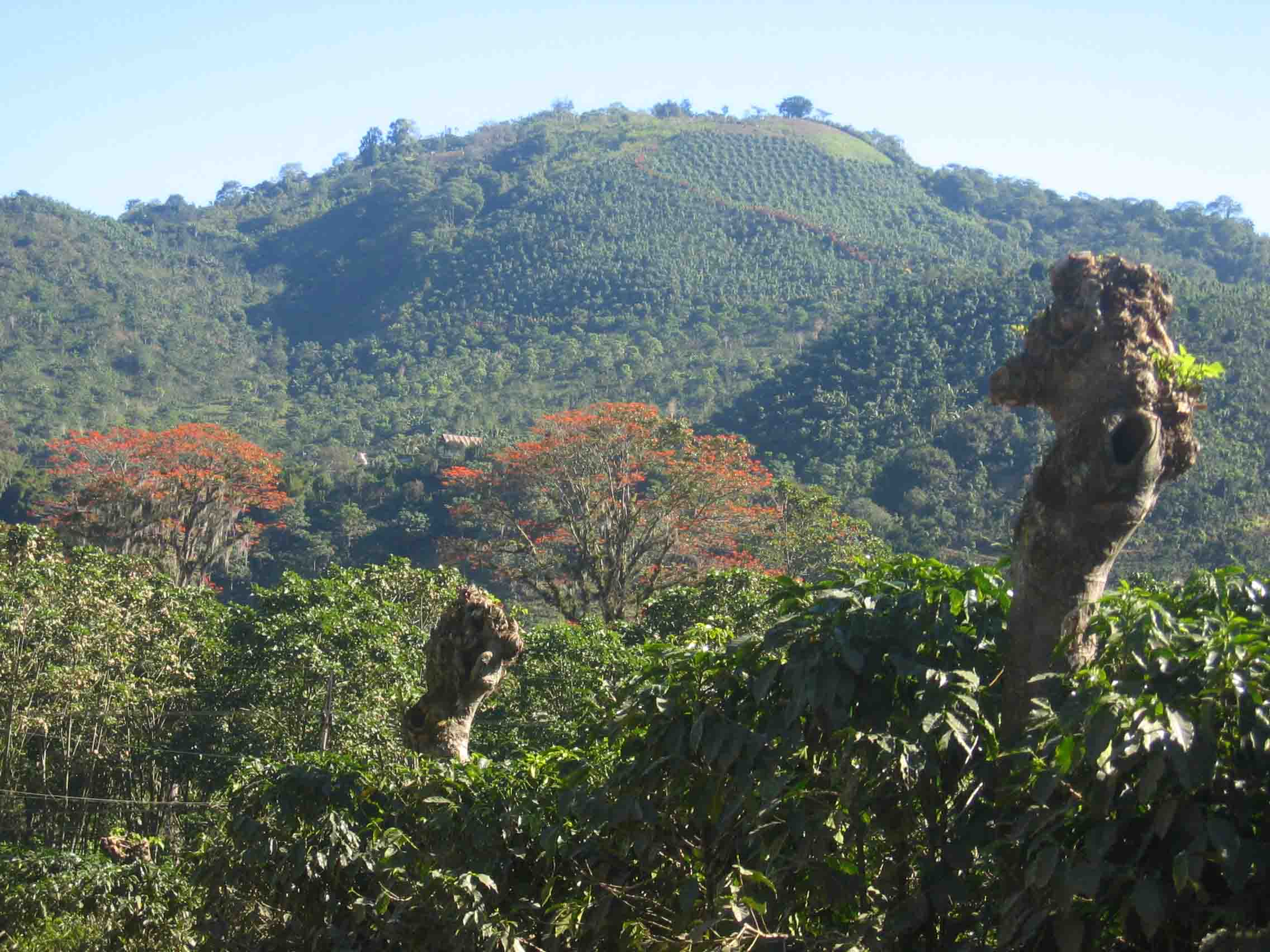Bird Enthusiasts & Coffee Aficionados, Unite!
Do you like fancy coffee? Birds do too, but not for the morning pick-me-up that millions of people rely on every day.
Agroforestry, the practice of growing crops alongside larger native trees and shrubs in a heterogeneous landscape, can provide a host of benefits to farmers and the environment, from increased crop productivity and soil fertility to protection against erosion, winds, and flooding. In Costa Rica, where coffee is often grown in agroforests, there may be yet another advantage to this kind of land use: birds have taken a liking to these shade-grown coffee plantations.
In the past, global conservation efforts were largely focused on setting aside as much pristine land as possible, but increasingly, the effort to protect the environment includes recommending steps we can take to use land in a more eco-friendly way. Given the habitat loss from shrinking forests in Costa Rica, researchers from the University of Georgia asked how well shade-grown coffee plantations could function as a “surrogate habitat” for birds. Past research has found a high degree of biodiversity in Costa Rica’s coffee agroforests, but much of it was limited in scope or focused on individual species. This latest research, published in PLOS ONE, provides a detailed analysis of avian populations in these coffee agroforests.
In this study, scientists hung mist nets in both undeveloped forest patches and in coffee agroforests, to capture and count nearly one hundred different bird species in the Monteverde region of Costa Rica, a major ecotourism hotspot (arial photo of collection site below). Using models that accounted for seasonal differences in the two habitats, capture rates for different bird species, and bird community behaviors, the researchers described three different bird communities–insectivores, omnivores, and frugivores (fruit eaters)–in secondary forest habitats and in shade-grown coffee agroforests. In particular, the analysis showed that the bird community composition and dynamics in shade-grown coffee plantations embedded in the tropical landscape are very similar (although not identical) to those found in secondary forests, a finding which supports the hypothesis that coffee agroforests can be a suitable surrogate habitat for birds.
The authors also suggest that the coffee agroforests may serve as wildlife corridors for birds, allowing them to move freely between larger patches of forest within a fragmented landscape. This kind of habitat linkage is critical, as connecting wild spaces via such corridors maximizes the ecological benefits they provide. The authors do caution that providing managed habitat for birds in the form of shade-grown coffee should be viewed as a complementary rather than a contradictory strategy for protecting bird habitat, as nothing can substitute for the preservation of forest habitat. But in a region where ecotourism and birdwatchers are primary economic drivers (the Three-wattled Bellbird and Resplendent Quetzal are two prominent locals), this knowledge could help inform the land management decisions that are so crucial to birds and humans alike.
Related Posts:
Read more about conservation efforts in the forests of Borneo
What animals might you find in southern California avocado orchards?
Citation: Hernandez SM, Mattsson BJ, Peters VE, Cooper RJ, Carroll CR (2013) Coffee Agroforests Remain Beneficial for Neotropical Bird Community Conservation across Seasons. PLoS ONE 8(9): e65101. doi:10.1371/journal.pone.0065101
Image 1: Coffee agroforest in Costa Rica from Wikipedia
Image 2: Image of a Resplendent Quetzal on Flickr by Frank Vassen
Image 3: Figure 1 of the manuscript



